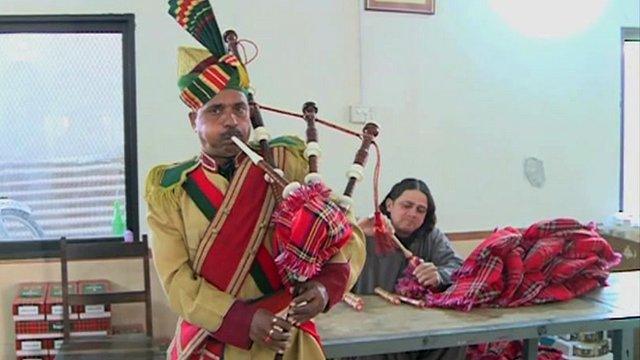The Nigerian with a mission to see a bagpipe revival
- Published
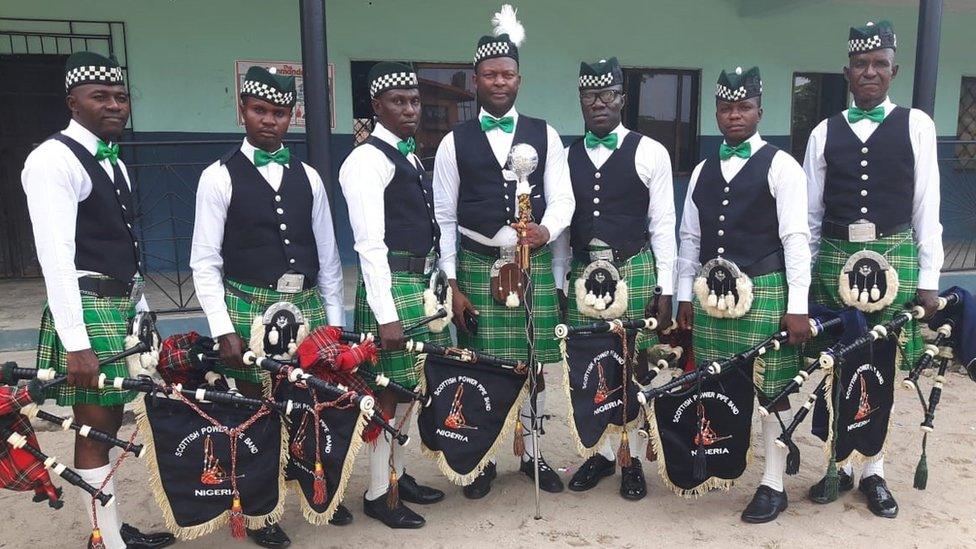
Chukwu Oba Kalu (C) has been recruiting people in Nigeria to play the bagpipes
Pipe Major Chukwu Oba Kalu is trying to turn a teenage dream into a national revival of playing the bagpipes in Nigeria.
The 46-year-old first saw the instrument played by a member of a police marching band when he was 18, and a trumpeter for the Boys' Brigade in Abia state, south-east Nigeria.
He was captivated, and told himself that one day he would learn how to play.
"It doesn't sound like any other instrument. It simply has an evocative sound… It touches the mind," he told BBC World Service Outlook programme.
Chukwu's first thought was to see if he could enrol at the prestigious National Piping Centre in Scotland, but lacked the funds to secure his place and get a visa.
His next idea was to get the instrument sent to Nigeria through mail order, but this too proved challenging.
He sent out emails to bagpipe sellers in the UK and US to see if he could buy a practice chanter, the introductory instrument for aspiring bagpipe players, but says he did not hear anything back for a long time.
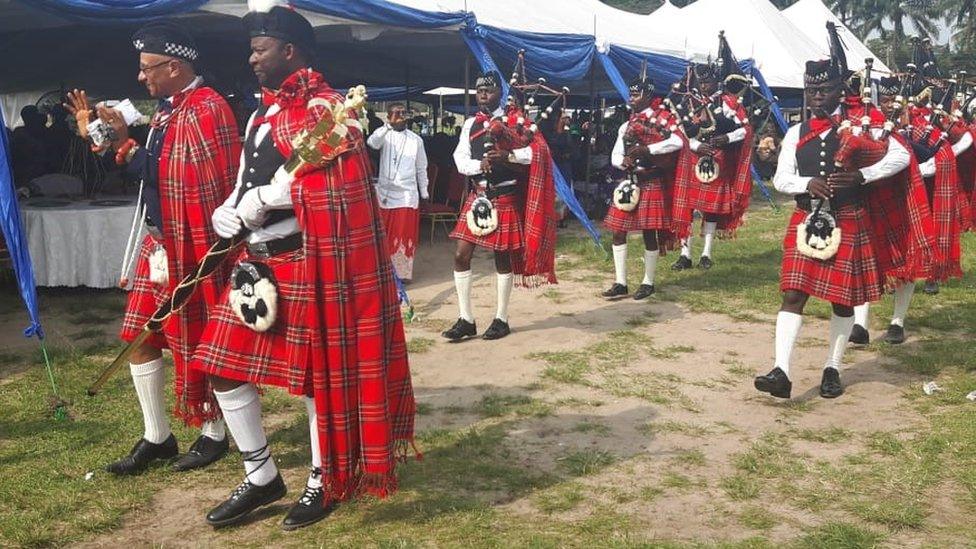
The pipe major leads his band at a wedding in Nigeria
Eventually, he got his first reply and only then understood why people might have been avoiding him.
The seller from California told him that people thought he was a scammer looking for their bank details.
To prove he was genuine, Chukwu posted US dollars in cash to California, and then waited for his first chanter to arrive.
"I was excited when it arrived in the post. As I touched it, I simply knelt down and prayed and I said: 'God, this is finally coming to me.'"
The chanter arrived in 2009, several years after he sent out his first emails.
The practice chanter has a delicate reed - essential for the mouthpiece of the instrument - which Chukwu had been warned to be very careful not to break.
"So I was handling the reed as if it was a new-born baby, like something so sensitive that I don't even want anybody to come close to me when I'm carrying it."
Part of Chukwu's interest in the bagpipes comes from his family.
His grandfather worked with British soldiers during the colonial period when Nigeria was under British rule and was known as Sagin, or Sergeant, to his friends and family.
He would sing war songs from his bedroom and Chukwu was fascinated to find out what they meant.
"This is more like a gene coming back again," Chukwu explained.
"I want to believe that the passion that my grandfather had working very closely with the British soldiers, the missionaries that came… the thing is still running."
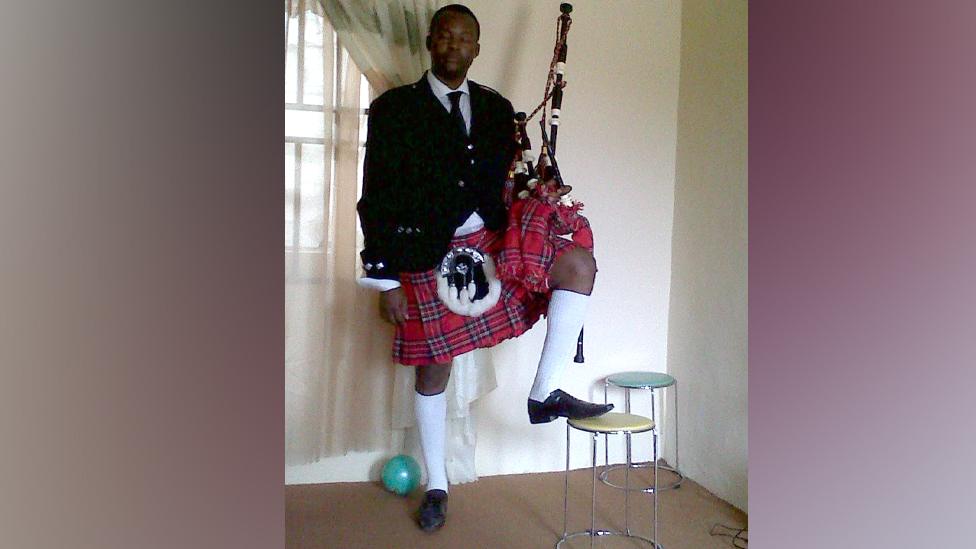
Chukwu believes there is a musical connection between the bagpipes and traditional Nigerian instruments
After he started to play the practice chanter, Chukwu soon upgraded to a full set of Great Highland Bagpipes.
He also set out to find other bagpipe players in the country, in the hope of forming a marching band.
During the colonial era, Scottish soldiers had taught Nigerians to play, and after independence in 1960 bands in the army and police maintained the tradition.
But things faded as the instruments got old and the musicians retired.
Chukwu tracked down some of the old musicians who could still play and together they began to recruit others and teach them the basics.
His band, Scottish Power Nigeria, now gets hired out for weddings, funerals and other events.
But his ambition did not stop there.
"My passion and my dream went beyond just playing the pipe as an artist, to seeking a return and revival of bagpipe music in Nigeria."
Chukwu wrote a proposal to train marching bands in the army, navy and air force.
The chief of air staff took a chance on him, and he organised a three-month training course for a band. The graduation ceremony was in early 2019.
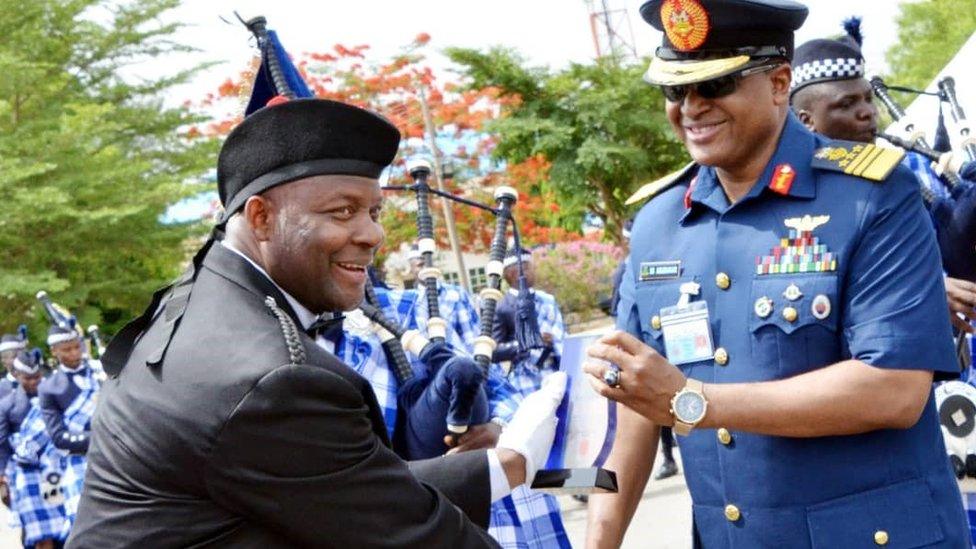
Chukwu Oba Kalu was pivotal in the formation of a pipe band in Nigeria's air force
During the ceremony, the leaders of other military agencies were invited, and the head of the navy asked Chukwu to organise a similar course.
He also recommended a revamp in the army, suggesting a special presidential piping unit, which was welcomed as the president of the time Muhammadu Buhari had already shown interest in the instrument.
Some might question why Chukwu is so passionate about an instrument and culture whose origins lie in another part of the world, and was associated with Britain's colonisation of Nigeria.
But in his mind the music and culture of Scotland and Nigeria are closer than might be thought.
"This particular instrument is not actually alien to Nigeria and Africa. In Nigeria there is a flute-like instrument [the oja], which through my study I saw that it is the ancestor of [the bagpipes]. So this instrument has been here with us."
Chukwu is hoping to continue training pipe bands in other military and security agencies.
"I'm so happy that it is actually moving and it's going to move more," says Chukwu.
And he still has his eyes on a visit to the heartland of the Great Highland Bagpipes.
"I intend to visit Scotland this year by the grace of God, once the resources come to me, [because] I've not been to Scotland before."
- Published24 April 2023
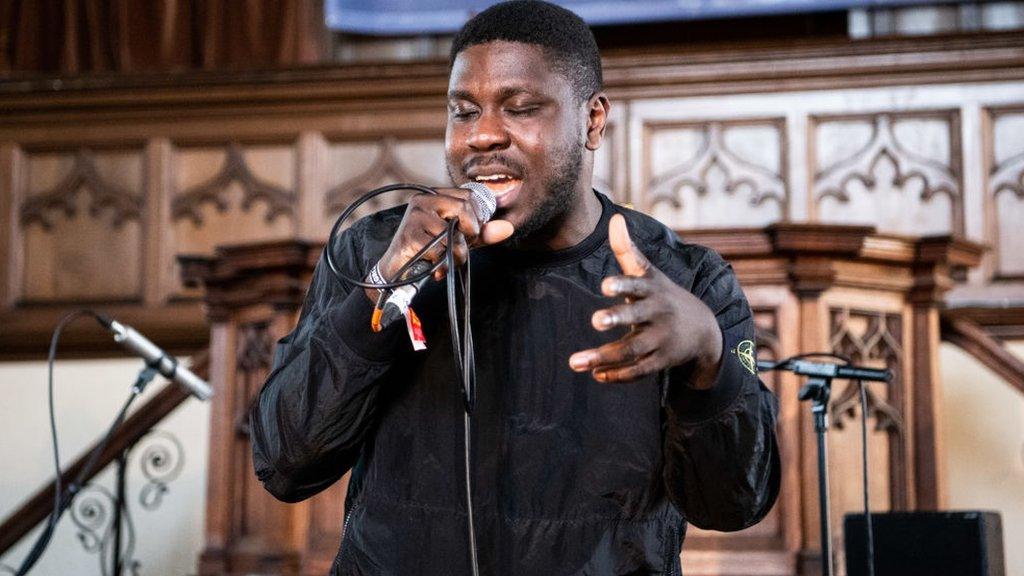
- Published31 December 2012
